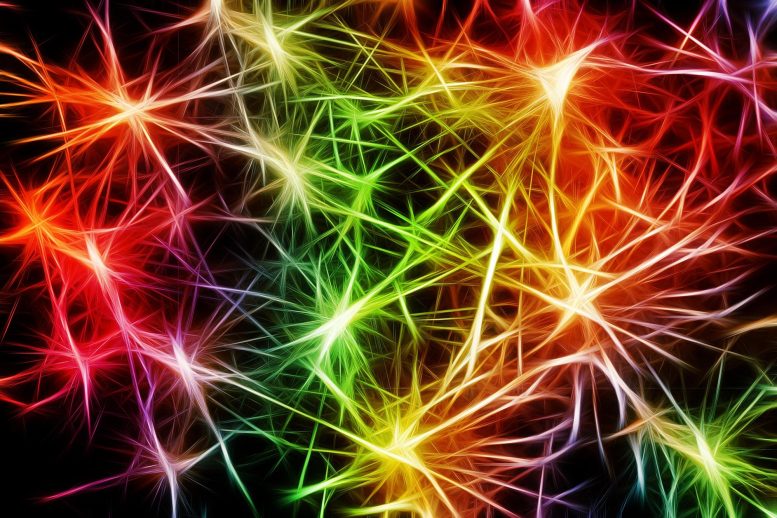
Researchers have identified how the brain chemical dopamine relates to schizophrenia.
Researchers examining post-mortem brains confirm a long-held hypothesis explaining neurotransmitter’s connection to a debilitating disorder.
How does the brain chemical dopamine relate to schizophrenia? It is a question that vexed scientists for more than 70 years, and now researchers at the Lieber Institute for Brain Development (LIBD) believe they have solved the challenging riddle. This new understanding may lead to better treatment of schizophrenia, an often-devastating brain disorder characterized by delusional thinking, hallucinations, and other forms of psychosis.
Through their exploration of the expression of genes in the caudate nucleus – a region of the brain linked to emotional decision-making – the scientists uncovered physical evidence that neuronal cells are unable to precisely control levels of dopamine. They also identified the genetic mechanism that controls dopamine flow. Their findings were published today (November 1) in the journal Nature Neuroscience.
According to the World Health Organization (WHO), approximately 1 in 300 people worldwide suffers from schizophrenia, which works out to around 24 million people. This rate climbs to 1 in 222 people if only adults are considered.
“Until now, scientists have been unable to decipher whether the dopamine link was a causative factor or solely a way to treat schizophrenia,” said Daniel R. Weinberger, M.D., a co-author of the study. “We have the first evidence that dopamine is a causative factor in schizophrenia.” Weinberger is chief executive and director of the Lieber Institute.
Dopamine, a type of neurotransmitter, acts as a chemical messenger that sends signals between neurons – nerve cells in the brain – to change their activity and behavior. Dopamine is the reward neurotransmitter that enables people to feel pleasure.
According to the National Institute of Mental Health, schizophrenia is 1 of the top 15 leading causes of disability worldwide. People with the affliction suffer from psychotic symptoms such as hallucinations, delusions, and disordered thinking, as well as reduced expression of emotions, reduced motivation to accomplish goals, difficulty in social relationships, motor impairment, and cognitive impairment. Symptoms typically begin in late adolescence or early adulthood, although cognitive impairment and unusual behaviors sometimes appear in childhood. Current treatments for schizophrenia include antipsychotic drugs which address the symptoms of pyschosis, but not the cause.
“One of the major side effects of the drugs used to treat schizophrenia is lack of pleasure and joy,” said Dr. Jennifer Erwin, an investigator at the Institute and one of the authors on the report. “In theory, if we could target the dopamine receptor specifically with drugs, that could be a new strategy for treatment that would not limit a patient’s joy as much.”
Scientists have known for decades that irregular levels of dopamine have some connection to psychosis and are a critical factor in schizophrenia, Alzheimer’s disease, and other neuropsychiatric disorders. Drugs that increase dopamine in the brain, such as amphetamines, are known to cause psychosis. Drugs that treat psychosis do so by reducing dopamine activity.
These observations have inspired generations of scientists to try to understand whether – and how – an imbalance of dopamine actually relates to schizophrenia. Dopamine transmits information in the brain by interacting with proteins on the surface of brain cells, called dopamine receptors. By studying those receptors, scientists at the Lieber Institute have come up with novel evidence confirming that dopamine is a causative factor for schizophrenia.
The investigators examined hundreds of post-mortem specimen brains donated to the Lieber Institute from over 350 individuals, some with schizophrenia and others without psychiatric illness. They chose to focus on the caudate nucleus, a part of the brain that is critically important for learning how to make complex ideas and behaviors more automatic and intuitive, but also because it has the brain’s richest supply of dopamine. They also studied a region of the human genome that large international genetic studies have identified as being connected with the risk of schizophrenia. This region contains the genes for the protein receptors that respond to dopamine, which points to the dopamine-schizophrenia connection. But while genetic data suggest at most a role of dopamine receptors at risk for schizophrenia, the data are not conclusive and do not identify what the relationship actually is. The investigators at the Lieber Institute went critically further in discovering the mechanisms that make dopamine receptors a risk factor.
The mechanism exists specifically in a subtype of the dopamine receptor, called the autoreceptor, which lies on the “male” side of the connection between neurons, the presynaptic terminal. This autoreceptor regulates how much dopamine is released from the presynaptic neuron. If autoreceptors are compromised, the flow of dopamine within the brain is poorly controlled, and too much dopamine flows for too long.
The investigators found that decreased expression of this autoreceptor in the brain explains the genetic evidence of risk for illness. This is consistent with the prevailing hypothesis that too much dopamine plays a role in psychosis, and strong evidence that the dopamine-schizophrenia riddle has at last been solved.
The pioneering neuroscientist Dr. Sol Snyder hailed the study as a breakthrough many decades in the making. Dr. Snyder is a distinguished service professor of neuroscience, pharmacology, and psychiatry and founder of the Department of Neuroscience at the Johns Hopkins University School of Medicine, which bears his name. He was the scientist who discovered that antipsychotic drugs work by reducing brain dopamine.
“There’s lots of muddled data indicating the relevance of dopamine and dopamine receptors in schizophrenia,” said Dr. Snyder, who was not involved in this research project. “The key thing these researchers have done is to collect data that puts it all together and in a fashion that is persuasive in establishing that dopamine systems are out of kilter in schizophrenia, and that is causal to the disease.”
“For decades, people have debated the dopamine connection to schizophrenia,” Dr. Snyder said. “They used to say, ‘Well, this is interesting to speculate about, but there’s no solid evidence.’ But now that we have much more rigorous data available, we keep coming back to the same story. You don’t have to call it a hypothesis anymore.”
Reference: “Analysis of the caudate nucleus transcriptome in individuals with schizophrenia highlights effects of antipsychotics and new risk genes” by Kynon J. M. Benjamin, Qiang Chen, Andrew E. Jaffe, Joshua M. Stolz, Leonardo Collado-Torres, Louise A. Huuki-Myers, Emily E. Burke, Ria Arora, Arthur S. Feltrin, André Rocha Barbosa, Eugenia Radulescu, Giulio Pergola, Joo Heon Shin, William S. Ulrich, Amy Deep-Soboslay, Ran Tao, the BrainSeq Consortium, Thomas M. Hyde, Joel E. Kleinman, Jennifer A. Erwin, Daniel R. Weinberger and Apuã C. M. Paquola, 1 November 2022, Nature Neuroscience.
DOI: 10.1038/s41593-022-01182-7

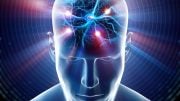
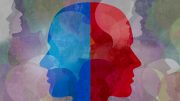
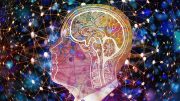
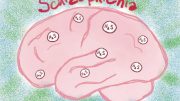
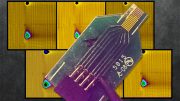
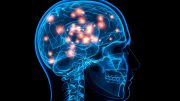
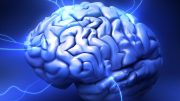

Too much Dopamine can cause Auditory Hallinations!Serequel helps although anybody with any updates too help email me!GODSPEED!
The presynaptic autoreceptors are poorly controlling the flow of Dopamine, leading to higher levels released and this being problematic and a real factor in psychosis.
Contrary to the research the antipsychotic Amisulpride at low doses preferentially block the presynaptic autoreceptors and increase Dopamine transmission and this does not seem to be problematic for those on this low maintenance dose of Amisulpride.
Yup it’s that dopamine.
I was wondering if anyone knew if there is any help for a 14 year old with drug induced Psychosis ? He was given a sheet of LSD at age 13. He will be 15 this month. He has been treated with so many different medications. He did not do well on them. He would take five hits of LSD at a time. His girlfriend betrayed him and broke his heart bad. He lost 90 some pounds. The break up was traumatic for him. He would continue taking hits of five until the sheet was gone. It has been a little over a year since he has last taking it. This is a mother’s nightmare !!!! He won’t eat in front of people. Has two friends, but is still scared to go in public. He is taking Vraylar and Lithium. He has spells of crying. He wants to be normal and do the things he once did like walking a dog without being Paranoid. He’s see’s a Pediatrician nurse practitioner therapist. I’am asking anyone with any information or help. Thank you kindly.
To Ann re: your teenage son, having a family member with the illness and working in a Pediatric office myself (retired), my suggestion would be to get him care with a mental health specialist.
I suggest abilify it helped me when nothing else did. I have the same thing. I’m much older but the aropiprosole that’s the generic name helped me a lot with the parinoia and other really hopeless feelings that came from my constant delusions.To put it bluntly it changed my life..for the better. Instead of constant confrontation with my loved ones and even my own thoughts I was finally at peace and able to make connections and become close again to what and who mattered instead of wasting all my time emotions and energy on what was not real except for inside my own head not in reality.The medicine was a god send.I highly recommend it to anyone with drug induced ya know problems.
Change your lifestyle to the point. All that you see, hear, smell, taste and touch is completely new to you. Now, before doing this go through all you likes and ask yourself. When I improve upon myself. My likes are going to change. Myself and likes improve! Look through your dislikes. Can you make peace with them. Let them go. Neutralize them. What brought you to this state you are in. Has to do with likes and dislikes. Our experiences were never meant to become likes and dislikes. Experiences give us information, turns information to knowledge. Our skills grow. How many friends would you lose, if, you let go of having conversations about someone? Someone they and you used to dislike or hate. You found your peace. They did not.
Don’t believe the hype. Like you have never worked we with people who intentionally try to bring down your natural reward system? Give you constant and baseless negative expectations? Condition you to believe you are not qualified? Victim of a “process” of soul theft I assert.
This disease could have been solved a long time ago by just reading the Torah, Bible and Koran which is all about men hearing voices from a devine being on how to get all your needs fulfill by rendering others into subjugatory behaviour. It had worked via the spoken word for thousand of years used by the earthly gods, kings, prophets, sultans etc long before the invention of the written word. The Human condition and politics continues to be affected by this disease to this very second.
crystal meth usually has the same effect… try looking into it.. scary.
I certailey feel for you.i fried my brain when i was a teen.im 68 now iv had years of struggle with deppression and by polar.iv had some good years and some bad years.im waiting to see a psycirtist now.i as well just experienced a break up.iv was alone for decades .then a wonderful woman met me .webwere together for a year .she seemed so stable and it turned out she was as toxic as me.unfortunately i couldnt cope.you would think there would be more research on this.i wish you and your son the best im so sry to hear about.his difficulties.iv tried counciling …useless….